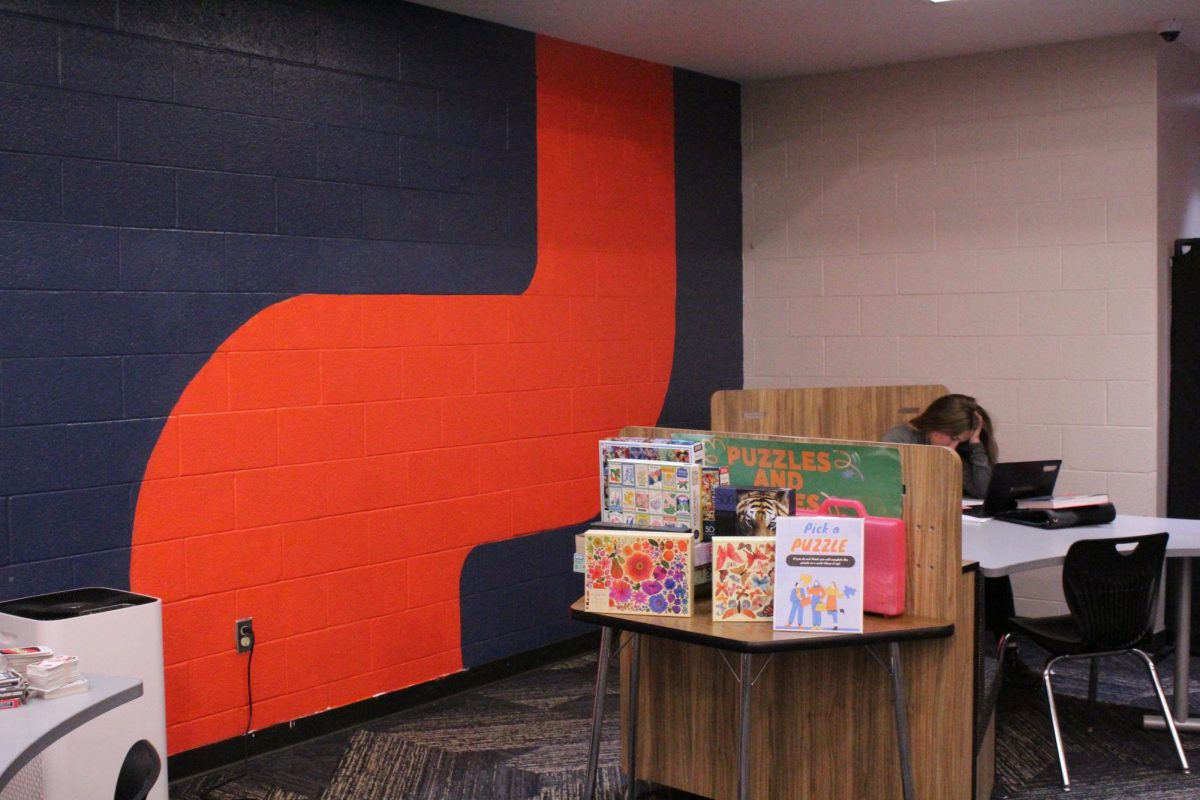Every morning, Junior Maddie Bickley-Ford gets up before the sun, her mind racing with the day’s to-do list. Is there a test in that class today? Does she have to go to work after school? How many assignments were due this Friday? It feels overwhelming and incessant.
And she isn’t alone in her struggle.
High school plays a crucial role in the growth and development of a person; however, it’s becoming increasingly harder for teens to manage their work-life balance while maintaining their mental health.
According to the National Center for Education Statistics, 69% of public schools reported an increase in the number of students seeking mental health services at school since the start of the COVID-19 pandemic.
In a survey given out to students in 8th-12th grade regarding stress and how it affects students, 94% of participants said they feel overwhelmed with their workload to some degree, with 83.05% of survey participants cited school-related pressures – deadlines, homework, and fear of falling behind – as their biggest stressors.
“If I don’t finish the work in class and then I have to take it home, it’s a little stressful because I do travel volleyball and I work,” Bickley-Ford said.
Deadlines have the potential to help students with time management, but many due dates are around the same time and leave students overwhelmed. Survey participants cited meeting deadlines as a major stressor, due to the quantity of work and quality.
8th grader, Lucy Spreeman is one of many students feeling the pressure of deadlines.
“I feel like deadlines close the amount of time that I have to work on that particular thing, and with everything outside of school and with my other classes, it kind of piles up,” said Spreeman
From standardized tests like the SAT to the constant push for a perfect GPA, students are burdened with the belief that every single grade and test score is crucial to their future. With so much pressure building up, they are left with a constant racing mind, anxious over their grades and work.
Senior, Miley Moser has felt stress’s impact on a teenager’s mental state. “I’ve definitely had a lot of anxiety attacks or breakouts in school. When I was younger, I used to go in the bathroom because I just needed a minute from school,” Moser shared.
This anxiety and pressure leave them with racing minds, unable to sleep, or up late to finish assignments. In fact, 88.1% of our survey participants said they’ve lost sleep due to a deadline or overslept to avoid their workload.
This is very troubling, as sleep is how our bodies repair themselves, in a sense. Getting proper sleep can help prevent infections, rebuild muscle, improve focus, and even prevent mood problems. Trinity Health registered sleep technician, Andrea Click, explains the importance of getting a good night’s rest, even if students may be stressed out.
“Teens need more sleep than they needed at 10 because they are going through a second development stage of maturation,” Click said. “They need about 9 to 9 ½ hours of sleep which is difficult to get with early start times for school and an increase in homework.”
With school as a primary stressor, it’s important to remember to take a step back and take a breather sometimes.
“I like to sit down, take a breather, and sometimes paint,” says junior Britni Bassett.
Many respondents to our survey said they enjoy listening to music, journaling, and taking walks.
Virtua Health’s healthcare professionals also suggest meditation and breathing exercises, while Moser likes to journal, work out, or take a break.
Despite following these strategies, she continues to struggle with deadlines and she feels unable to produce her best work.
“I feel like teachers definitely treat you differently when you turn in your work vs when you don’t, so I think that freaks me out,” Moser said.
Even though Moser isn’t alone in feeling this way, Government and Economy teacher, Caitlin Brown, believes that students are putting too much pressure on themselves, which is why they’re left feeling so overwhelmed. They always push themselves to go above and beyond, even when it’s not mandatory.
“As a teacher, it’s never fun to see your kids stressing about things, especially when you know they don’t need to be stressed, and they’re kind of working themselves up to a place that’s going to just kind of inhibit what they can do,” Brown said.
The pressures of school and the delicate balance of managing everything can be quite overwhelming for many people, and it takes a toll on students physically and mentally. While stress is inevitable, it’s crucial to take steps towards change and improving the quality of life of students.
“I think a study period would be very beneficial. But we all just wake up so exhausted, not getting enough sleep. We all have to work. We all just have way too many things on our workload,” said Moser.







